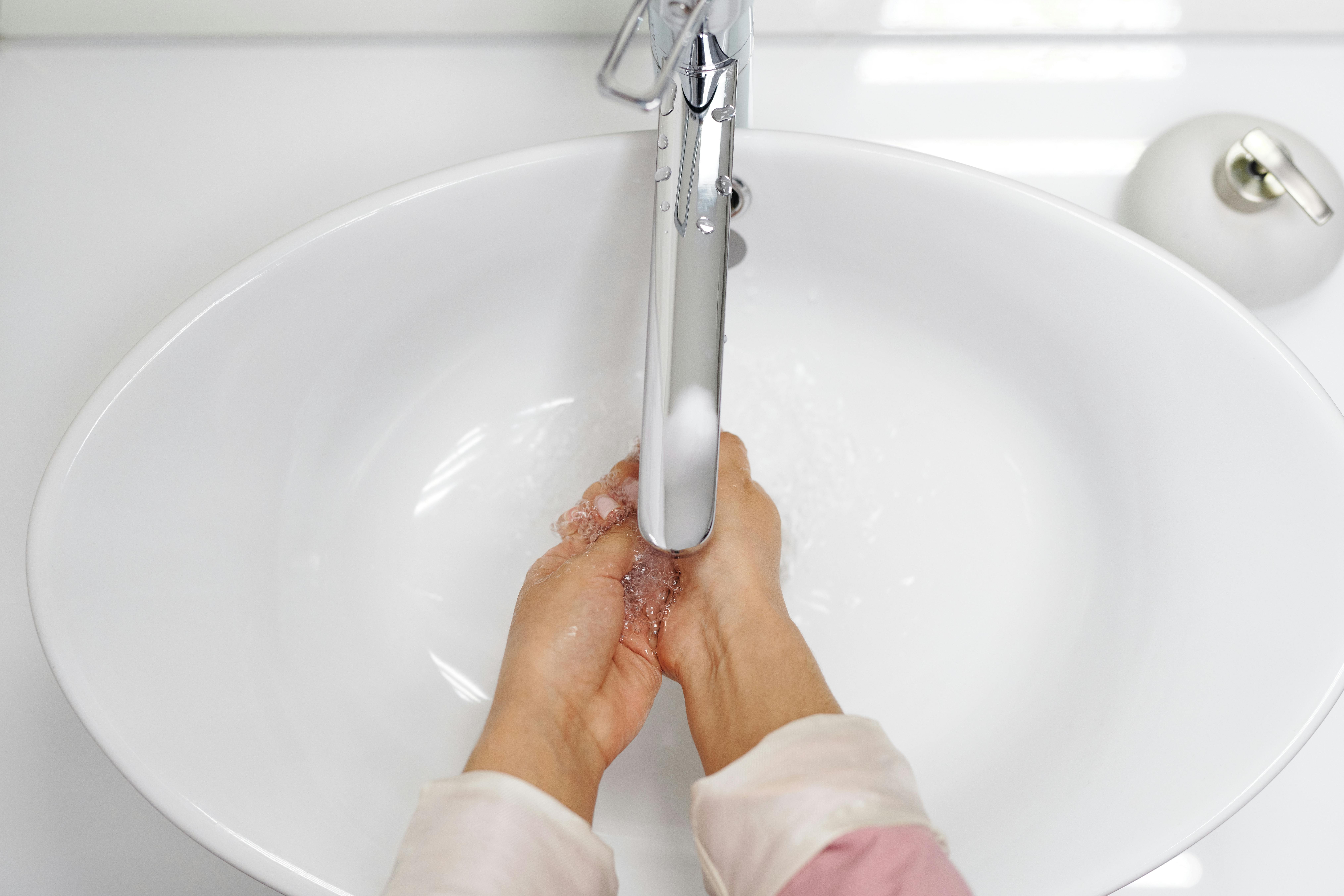Deionized water, also known as demineralized water, is an increasingly popular alternative to tap water for drinking and cooking. It has been purified through a process of reverse osmosis, distillation, or deionization to remove unwanted contaminants such as chlorine and heavy metals.
In terms of purity, deionized water is significantly more pure than tap water. Tap water typically contains many dissolved minerals and trace elements that can affect its taste and clarity. Deionized water has been filtered to remove these impurities so it is much purer than tap water. Additionally, deionized water does not contain any bacteria or protozoa that can cause health issues if consumed.
However, it is important to note that deionized water does not contain essential minerals that are found in tap water such as calcium and magnesium. This means it may not be the best choice for drinking on a regular basis unless supplemented with minerals.Deionized water, also known as demineralized water, is a type of purified water that has had its mineral ions removed, such as cations like sodium, calcium, iron, and copper, and anions such as chloride and sulfate. The process for removing these ions involves passing the water through a specialized filtering system using ion exchange resins.
Deionized water is used for many industrial applications because it does not contain any minerals or other impurities. It can be used in cleaning and rinsing processes, cooling towers, pharmaceutical production processes, medical laboratories, automotive manufacturing plants, and electronic device manufacturing. It is also used in aquariums to maintain a healthy environment for the fish and other aquatic life.
In addition to its industrial uses, deionized water is sometimes used to make drinking water because it has been filtered to remove any impurities that might be present in tap or well water. However, it should not be relied upon as a primary source of drinking water since it lacks the necessary minerals that are important for the body’s health.
Contents
Impurities Found in Tap Water
Tap water contains a variety of impurities that can affect its taste, odor, and safety. Common impurities found in tap water include chlorine, lead, bacteria, nitrates, and fluoride. Chlorine is added to tap water as a disinfectant to kill germs and bacteria. Unfortunately, it can also give the water an unpleasant taste and odor. Lead is found in old pipes and fixtures that can corrode over time and leach into the water supply. Bacteria can be found in untreated or poorly treated water sources, which can cause serious health problems if ingested. Nitrates are naturally occurring compounds that come from agricultural runoff and sewage waste. They can be hazardous to human health if present in large amounts. Lastly, fluoride is added to many municipal water supplies to help strengthen teeth enamel; however, too much fluoride can have adverse health effects.
It’s important to remember that while tap water may contain these impurities, it is typically monitored for safety by local government agencies. With proper treatment and filtration systems, these impurities can be removed from drinking or cooking water for improved taste and safety.
Process of Deionizing Water
Deionizing water involves the use of ion exchange resins to remove mineral salts from water. These resins attract and hold the positively and negatively charged ions, allowing pure water molecules to pass through. The process is a form of purification that removes most impurities, including minerals, bacteria, and organic contaminants. It is often used in industrial applications such as brewing beer, car washing, and medical equipment sterilization.
The process begins by passing the raw water through an ion exchange resin bed. This resin bed contains beads which are designed to attract and hold ions in the water. As the water flows through the bed, positive and negative ions are removed from it and held onto the resin beads. Once all of the ions have been removed, the purified water passes through to a holding tank for further use.
The used resin must then be regenerated before it can be reused for deionizing water again. This is done by passing a concentrated solution of either sodium chloride or potassium chloride into the resin bed. This solution causes a reaction with the resin beads which causes them to release their held ions in exchange for those in the regenerating solution.
Once regeneration is complete, any remaining regenerant is flushed out with fresh water before the deionizing process can begin again. The process is repeated until all of the desired impurities have been removed from the raw water supply. Deionized water is often used as part of a larger filtration system in order to ensure that only clean, pure drinking water comes out at the end.
Deionizing water can also be done manually using a filter system specifically designed for this purpose. These systems usually involve multiple stages including carbon filtration, sediment filtration, reverse osmosis filtration and deionization filters which can remove 99% of all dissolved solids from your tap or well-water supply.

Is Deionized Water Safe to Drink?
Deionized water is water that has had its mineral ions removed, such as calcium, iron, copper, sodium and chloride. This type of water is also known as demineralized water. It is created through a process called deionization, which uses special resins to remove the ions from the water. Because of this process, deionized water typically does not contain any contaminants that are normally found in regular tap or bottled water. As a result, it can be used for a variety of purposes including drinking and cooking.
Deionized water is generally considered safe for drinking. There are no known health risks associated with drinking deionized water. However, people with sensitive digestive systems may experience some discomfort due to the lack of minerals present in the water. Additionally, people who are on low-sodium diets should be aware that deionized water contains no sodium and may need to supplement their diets with additional sources of this mineral.
In addition to being safe for drinking, deionized water can also be used for other purposes such as cleaning and industrial applications. It is often used in medical laboratories and hospitals due to its ability to remove bacteria and other contaminants from surfaces and equipment. Deionized water can also be used in aquariums because it helps keep the pH level balanced and prevents algae growth.
While deionized water is generally safe to drink, it should not be consumed as a primary source of hydration since it lacks many essential minerals found in regular tap or bottled waters. People should always drink plenty of regular tap or bottled waters throughout the day in order to stay properly hydrated.
Common Uses for Deionized Water
Deionized water is a type of purified water that has had its mineral ions removed. It is a versatile and important resource used in many industries and applications. Some of the most common uses for deionized water include:
- Manufacturing and industrial processes: Deionized water is often used in various manufacturing and industrial processes, such as cooling systems, boilers, and steam production.
- Laboratory use: Deionized water is commonly used in laboratories for testing, preparation of reagents, and analysis.
- Medical use: Deionized water is an important resource in medical settings, where it can be used to clean medical instruments or to make solutions for intravenous injections.
- Cleaning: Deionized water can be used to clean surfaces or equipment without leaving behind any mineral deposits.
Deionized water is also essential in many household applications. It can be used to do laundry without leaving behind any residue or soap scum. It can also be used for cleaning glass surfaces, since there are no mineral deposits left behind that could cause them to become cloudy. Additionally, deionized water can be used as drinking water since it does not contain any minerals that may have adverse health effects.
Cost Comparison Between Tap and Deionized Water
When comparing the costs between tap and deionized water, several factors should be taken into account. Tap water typically costs much less than deionized water, but the cost of purchasing, storing, and using deionized water often comes with a higher quality assurance.
Tap water is usually sourced from a public supply, such as a city or county water system. As such, it is generally cheaper than deionized water because it is already treated and filtered to meet safety standards. However, tap water may still contain minerals that can affect the taste or smell of food or beverages made with it.
Deionized water is produced through a process known as ion exchange. This process removes impurities from the water by exchanging them for hydrogen ions or hydroxide ions. The result is purer water that is free of any minerals or impurities that can affect its taste or smell. This makes deionized water an ideal choice for laboratory testing and certain medical procedures where purity of the sample is essential.
The cost of purchasing, storing, and using deionized water can add up quickly due to its higher quality assurance requirements. In addition to the cost of the actual product, there may be additional costs associated with equipment needed to produce it (such as filtration systems) and storage containers for long-term use. Additionally, special care must be taken when handling deionized water since it may damage certain materials if not treated properly.
When comparing the costs between tap and deionized water, one must consider both short-term and long-term costs associated with each type of water before making a decision on which one will best suit their needs. While tap water may offer lower upfront costs, deionized water may prove to be more cost-effective in the long run due to its higher quality assurance requirements.

Conclusion
Deionized water is significantly more pure than tap water, as it has had all of its minerals and other impurities removed. Deionized water is a concentrated form of pure water, meaning it can be used for applications such as scientific research and medical procedures where contaminants are not desired. Tap water, on the other hand, is not as pure because it contains many minerals and other impurities that can affect the quality of the water.
Deionized water offers a variety of advantages over tap water including greater purity, lower cost, and ease of use. It can be used for a wide range of applications from industrial to medical purposes, making it an ideal choice for those who need clean and safe drinking water. In summary, deionized water is significantly more pure than tap water and should be considered when seeking reliable source of drinking water.
0 Comments